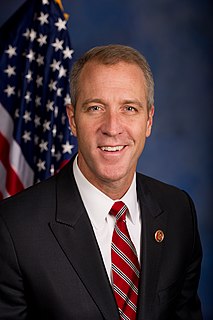A Quote by Tom Cotton
The acronym ISIS stands for the Islamic State of Iraq and Syria. But increasingly, we see that it's not limited there. We see it in Egypt. We see it in Libya. We see it in Afghanistan.
Quote Topics
Related Quotes
If I look at the really important questions in [Middle East] region, I see Iran, where there is a strong desire for a freer society and where people are repressed by a small group of ayatollahs. I see Syria, where we can see a similar desire of the people to be free. These two countries fund Hezbollah and other terrorist organizations and are hurting our efforts in Afghanistan and have been extremely harmful in Iraq. Then I also see large, important countries such as Egypt and Saudi Arabia.
In 2009, pre-Hillary, ISIS was not even on the map, Libya was stable, Egypt was peaceful, Iraq was seeing really a big, big reduction in violence, Iran was being choked by sanctions, Syria was somewhat under control. After four years of Hillary Clinton, what do we have? ISIS has spread across the region and the entire world. Libya is in ruins and our ambassador and his staff were left helpless to die at the hands of savage killers. Egypt was turned over to the radical Muslim Brotherhood, forcing the military to retake control. Iraq is in chaos. Iran is on the path to nuclear weapons.
We understand that ISIS is a group that's growing in its governance of territory. It's not just Iraq and Syria. They are now a predominant group in Libya. They are beginning to pop up in Afghanistan. They are increasingly involved now in attacks in Yemen. They have Jordan in their sights. This group needs to be confronted with serious proposals.
I have two sons. Both served. One as a marine officer in Iraq, one as an army officer in Afghanistan. I do not see - want to see one parent or loved one worrying about getting a call in the middle of the night. I would not place one American life at risk unless it was absolutely necessary. But to destroy ISIS, it is necessary.
we ought to realize by now (see Korea, see Vietnam, see Afghanistan, see Iraq, see Iran) that deploying the US military, or dealing billions of dollars a year of arms to our ally of the moment that can serve as a regional rival to our enemy of the moment, is not always the best way to make threats go away. Our military and weapons prowess is a fantastic and perfectly weighted hammer, but that doesn't make every international problem a nail.
The latest developments in Iraq are deeply troubling, but as the United States considers military and diplomatic responses to the actions of the Islamic State in Iraq and Syria (ISIS) action, we should be clear that U.S. troops on the ground cannot go a million miles near a sectarian civil war-it's simply not an option.































